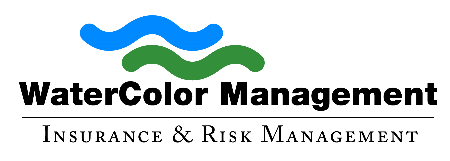
Cybercrime is becoming an alarming threat to water treatment facilities, which are critical to community infrastructure. As an insurance agent, understanding these cyber risks is essential for helping clients secure their operations with comprehensive water industry insurance. This blog explores how tailored coverage and proactive strategies can protect water treatment facilities from devastating cyberattacks.
Cyber Threats in Water Treatment
Water treatment facilities face increasingly sophisticated cyber threats that can jeopardize their operations and data security. For instance, ransomware attacks can lock down entire systems, disrupting the delivery of clean water. Additionally, system breaches can compromise sensitive data, including operational controls and customer information.
These threats not only lead to financial losses but also put public health and safety at risk. In fact, U.S. Cybersecurity and Infrastructure Security Agency officials warn that only 20% of the country’s publicly owned water systems enact basic cybersecurity measures.
For insurance agents, it is crucial to grasp the scope of these vulnerabilities so you can recommend effective protection strategies. Without the right safeguards in place, water treatment facilities may find themselves ill-equipped to recover from a major cyber incident.
Role of Water Industry Insurance in Cyber Protection
Water industry insurance plays a pivotal role in mitigating the financial and operational impacts of cybercrime. Coverage options such as cyber liability insurance provide financial protection for data breaches, ransomware payments, and system recovery costs.
For example, if a cyberattack disrupts facility operations, water industry insurance can cover the expenses necessary to restore systems and manage reputational damage. In addition, policies can include coverage for legal fees, customer notification costs, and regulatory fines stemming from data breaches.
By tailoring policies to include these critical protections, insurance agents can ensure their clients are well-prepared to handle cyber risks.
Proactive Steps for Cybersecurity Protection
While insurance is a critical safety net, prevention is equally important. As an insurance agent, you can guide your water treatment clients toward proactive cybersecurity measures that reduce the likelihood of an attack.
- Employee training: Ensure staff members understand how to recognize phishing attempts and respond appropriately to other cyber threats.
- Regular system audits: Conduct frequent security checks to identify and fix vulnerabilities.
- Software updates: Keep all systems and applications up-to-date to prevent exploitation of known weaknesses.
Combining these measures with comprehensive management insurance coverage creates a robust defense against cybercrime. Additionally, implementing preventive actions may result in premium reductions and more favorable coverage terms, giving clients further incentive to invest in cybersecurity.
Securing Cyber Protection for Water Treatment Facilities
Water treatment facilities face unique and growing cyber threats, but with the right strategies and insurance solutions, these risks can be manageable.
By understanding the vulnerabilities in the water industry and offering tailored water industry insurance coverage, you can help your clients safeguard their operations and maintain public trust.
Contact WaterColor Management today to learn how we can support you in providing comprehensive protection strategies for your water treatment clients, ensuring they remain resilient in the face of cyber challenges.
About WaterColor Management
WaterColor Management has insured the water industry for over 30 years. Our policies include unlimited defense cost coverage in the event of a lawsuit against you. Call us at (855) 929-0824 or email info@watercolormanagement.com for a quick quote for your Water Business Professional, Products/Completed operations, Pollution, and General Liability Insurance.




